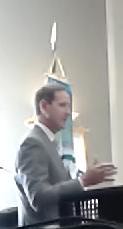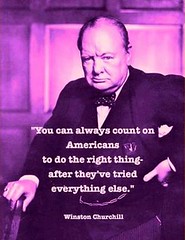Alcohol Prohibition didn’t work. Prohibition of marijuana and other drugs actually failed in much worse ways than alcohol prohibition did. I don’t always agree with The Economist, but about this I do: it’s time to end the failed War on Drugs and ramp down the expensively bloated U.S. prison system.
Uncle Sam Will Enforce Prohibition,
Our September 22nd 1923 issue examined the impact of America’s experiment with alcohol prohibition. The newspaper encourages a similarly liberal approach to drug control today.
We wrote: “A law is not necessarily a good or wise law because it aims at doing something which is desirable. If it is impossible of strict administration, it will not only fail in its object, but, what is far more serious will bring both law, legislature and executive into open contempt.”
Continue reading



